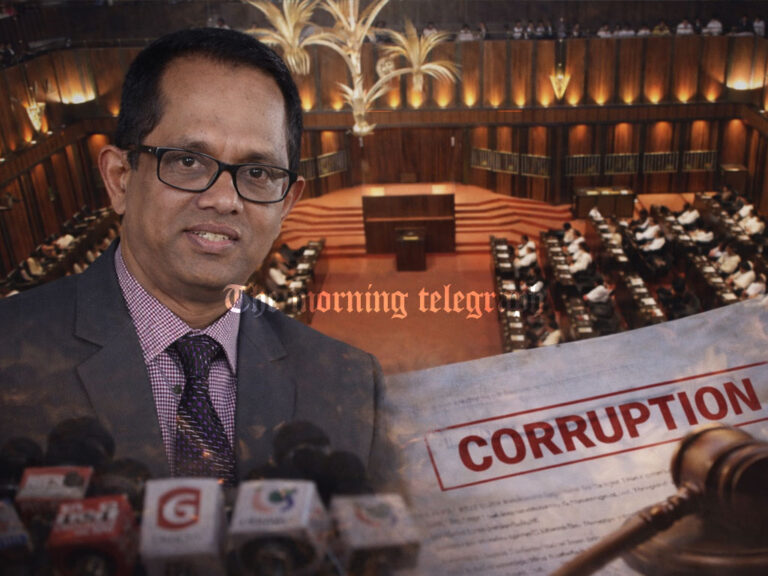
In a statement that has stirred both debate and disbelief, Foreign Minister Vijitha Herath suggested that going after all wrongdoers at once could collapse the country’s economy—and that’s why, he says, thieves are being caught “on their way home” instead.
Appearing on the popular political talk show Salakuna on Sirasa TV, Herath made the remarks while addressing public frustration over the slow pace of accountability for corruption and financial misconduct. While the government has been in power for just under a year in its five-year mandate, expectations are mounting.
“People gave us a strong mandate,” he acknowledged. “Naturally, they want to see results fast. But if we put the full weight of the government into catching every fraudster and punishing every thief all at once, we risk destabilizing the economy.”
His comments reflect a balancing act the government claims to be managing—pursuing justice without tipping over a system still recovering from crisis. The Minister emphasized that the administration is working carefully to maintain economic stability, suggesting that taking down major figures in rapid succession could shake investor confidence, disrupt public service continuity, or trigger political backlash.
“We’re not ignoring the crimes,” Herath insisted. “But we’re following a path that ensures the country doesn’t collapse while doing it.”
Still, the analogy of “catching thieves on their way home” has left many wondering—how long is the journey, and how many get away in the meantime?
Critics argue that justice delayed, especially in the face of public anger over past abuses, can easily morph into justice denied. For a nation burdened by inflation, debt, and economic inequality, calls for accountability are not just moral—they’re existential.
But for Herath, the answer is patience with a purpose. In his view, Sri Lanka must rebuild and stabilize first—and take on its corruption challenges gradually, even if it means letting some suspects walk a little longer.
Whether the public agrees with this measured approach—or sees it as an excuse for inaction—remains to be seen. But as the months pass and the promises of justice linger unfulfilled, the pressure on that path—and the patience for it—is starting to wear thin.




